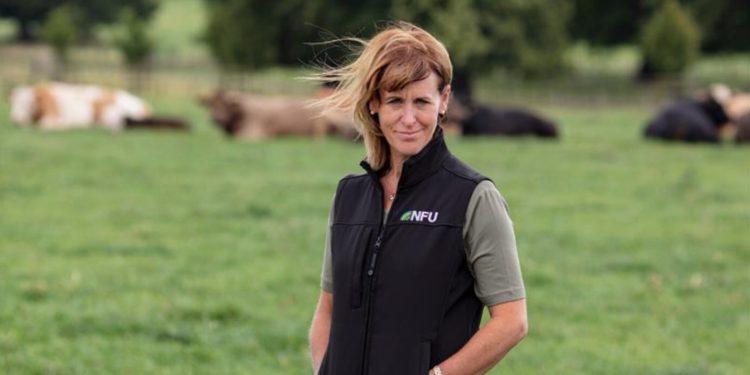England’s Agriculture Act, passed into law this week, has been largely welcomed across food systems, with caution expressed around food standards and future trade agreements. It’s the first domestic agriculture legislation passed in more than 70 years.
National Farmers Union President Minette Batters said ,“Two years ago when the bill was first published, the absence of food production and food security troubled many. The NFU made the case at the highest levels.”
Under the act now, the government will report on UK food security to parliament every three years, with the first report published at the end of next year. It will include analysis of Covid-19’s impact on food supply, global food availability, food safety, and consumer confidence.
A seven-year transition for farmers starts next year, to adapt to a new agricultural system. The act will reward English farmers and land managers with public money for “public goods” such as cleaner air and water, thriving wildlife, soil health, and measures to reduce flooding and tackle the effects of climate change.
The incentives will help deliver a government commitment to reach net zero emissions by 2050.
“It serves to remind us of the profound responsibilities we in agriculture have”
Minette Batters added, “The act does not mean the issue of domestic agricultural policy is solved forever. Farmers across the country find themselves in uncertain and challenging times and it is crucial that the government continues to work with the NFU and our members to shape how they use the powers granted to them in the Agriculture Act.”
The act requires a report to parliament on the impact future trade deals could have on food and farming, with the Trade and Agriculture Commission expected to take on responsibility for these matters.
President of the Country Land and Business Association (CLA) Mark Bridgeman warned of the payments gap planned, with cuts starting in January next year, four years before most of the new payments are available.
However, he added, “The act serves to remind us of the profound responsibilities we, in agriculture, have; to feed the nation, to help mitigate climate change and reverse biodiversity decline, and also to help support our local communities through job creation and economic development.”
British Veterinary Association (BVA) President James Russell pointed out that the act does not include the assurances hoped for on international trade deals. However he welcomed the strengthening of the Trade and Agriculture Commission’s remit.
He added, “The BVA secured assurances early on that animal health and welfare would be considered public goods and we are pleased to be involved in discussions about how this will be delivered, in practice.”
Under the act, the Basic Payment Scheme subsidy system will be replaced. This largely paid farmers for the total amount of land farmed, skewing payments toward the largest landowners, rather than rewarding farmers for any specific public benefits.
By phasing out the Basic Payment Scheme (BPS), funds will focus on incentivising sustainable farming practices, creating habitats for nature recovery, and supporting the establishment of new woodland and other ecosystem services to help tackle challenges like climate change, according to the government.
The new system will be designed to support farmers in reducing costs and improving profitability. It will help those wanting to retire or leave the sector and support new entrants.























